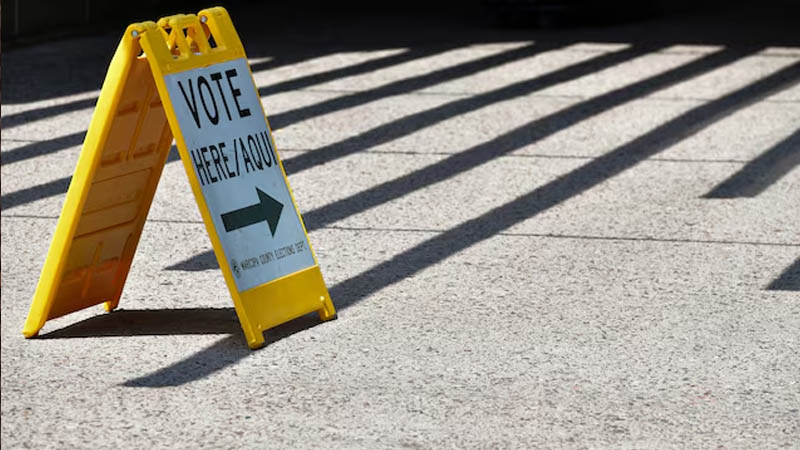In a surprising move, U.S. Supreme Court Justice Amy Coney Barrett broke from her fellow conservative justices on Thursday in a significant voting rights case out of Arizona, according to Reuters. The case, brought forward by the Republican National Committee (RNC), asked the court to block a lower-court order that prevented the enforcement of a 2022 Arizona law requiring proof of citizenship to vote in federal elections.
Arizona, a critical swing state in the 2024 presidential race, is home to several pivotal races, including a key Senate seat and two battleground congressional districts. While traditionally leaning Republican, Arizona has shifted toward the Democrats in recent years, with President Joe Biden narrowly winning the state in 2020.
In a 5-4 decision, the Supreme Court granted part of the RNC’s request, allowing Arizona election officials to reject new voter registration forms that lack proof of citizenship, such as a birth certificate or passport. However, the court rejected the RNC’s request to prevent already registered voters who had not provided proof of citizenship from voting in federal elections or by mail, via The Daily Beast.
If the court had granted the full request, it could have disenfranchised tens of thousands of Arizonans in the upcoming presidential election. Currently, proof of citizenship is required to vote in statewide elections in Arizona, but not for federal races, including presidential and congressional elections. The 2022 law in question sought to impose this requirement for federal elections, but it had not yet been enforced.
While a majority of the justices agreed to partially grant the RNC’s request, Justice Barrett, who was appointed by former President Donald Trump, joined the court’s three liberal justices in supporting a full rejection of the request. The order noted, “Justice Sotomayor, Justice Kagan, Justice Barrett, and Justice Jackson would deny the application in full.”
Barrett has occasionally been seen as a more moderate voice among the court’s conservatives. In previous rulings, she has diverged from her conservative colleagues, including aspects of Trump’s immunity case and a case concerning social media content moderation during the COVID-19 pandemic.
Arizona Secretary of State Adrian Fontes, a Democrat, responded to the Supreme Court’s decision with caution. “Following the Supreme Court’s decision, Arizona’s law requiring documentary proof of citizenship for voter registration is reinstated,” Fontes said. He expressed concern about the timing of these changes so close to an election, noting, “It creates confusion for voters. We respect the Court’s decision and will implement these changes while continuing to protect voter access and make voting a simple process.”
RNC Chairman Michael Whatley celebrated the court’s decision, calling it “a major victory for election integrity.” He added, “American elections must be decided by American citizens, told BBC. While Democrats have worked to undermine basic election safeguards… we have fought tooth and nail to preserve citizenship requirements, see the law enforced, and secure our elections. The Supreme Court has sided with the RNC, and the American people, to protect the vote in November.”


